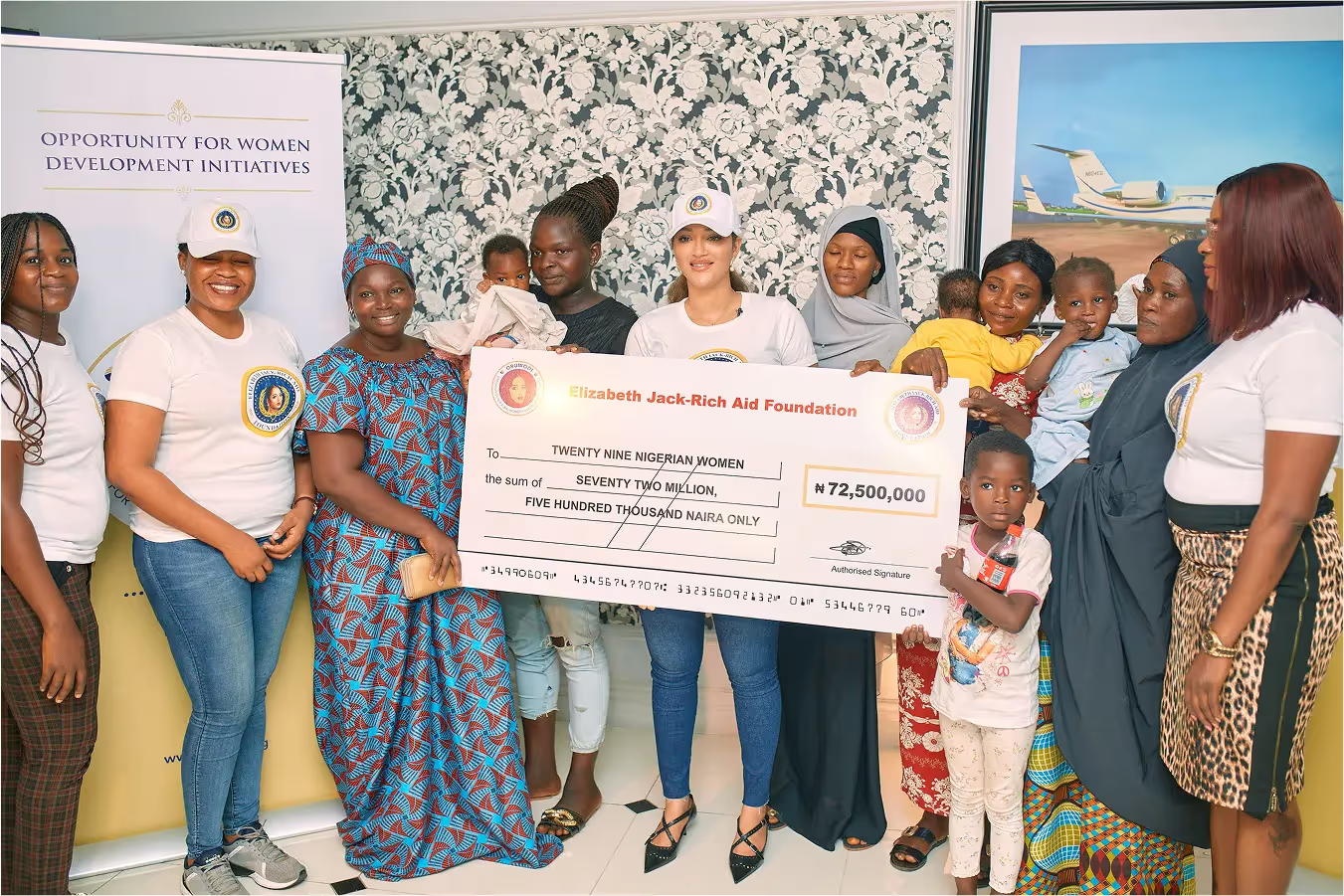Subscribe to receive the latest blog posts to your inbox every week.
For many years, conversations around women empowerment in Nigeria have been met with skepticism, and, unfortunately, a cloud of misconceptions regarding why, where, and how women empowerment is needed. Despite the nation’s strides toward gender equality, several false and uninformed narratives persist, hindering the progress of change. Some view it as a pro-women movement, others see it as a form of political wokeness, but it is more than that.
Here at EJRAID, we are rewriting the narrative by employing transparency in the execution and reasoning behind our programs and ensuring that the reality of our work is shared in its most authentic form. This article explores some of these misconceptions and the truth behind them.
Misconception 1: Women Empowerment is Anti-Men
One of the oldest misconceptions is that women's empowerment seeks to undermine or marginalize men. This couldn’t be further from the truth. Women empowerment is about leveling the playing field and providing women with equal opportunities to thrive alongside men, not as opponents.
The EJRAID Foundation embodies this principle by fostering inclusive development programs that benefit entire communities. Their initiatives focus on collaboration, showing that empowering women strengthens families, economies, and societies at large. By supporting vocational training, small business funding, and educational programs for women and children, the foundation ensures that progress uplifts everyone, men included.
Misconception 2: Women Empowerment Focuses Only On Urban Women
Another common lie is that women empowerment programs cater solely to urban women, leaving rural women behind. While it’s true that urban areas often receive more visibility, rural women face unique challenges that demand equal, if not greater, attention.
The EJRAID Foundation is bridging this gap by targeting underserved communities across Nigeria. Through initiatives like vocational training and access to micro-loans, the foundation empowers rural women to become financially independent while equipping them with skills to sustain their livelihoods. We are committed to grassroots empowerment to ensure that no woman is left behind, irrespective of tribe or geography.
Misconception 3: Empowering Women Means Solely Financial Assistance
Many people equate women empowerment with financial aid only. While financial independence is a cornerstone of empowerment, it is only one piece of the puzzle. True empowerment encompasses education, health, self-esteem development, and access to opportunities.
Recognizing this, the EJRAID Foundation adopts a comprehensive approach to empowerment. Beyond funding, we provide mentorship programs, educational scholarships, healthcare interventions, and leadership training. These multifaceted efforts help women build confidence and capacity, enabling them to contribute meaningfully to society.
Misconception 4: Women's Empowerment is a Foreign Agenda
Some critics argue that women's empowerment is a Western import with little relevance to Nigeria’s culture and traditions. This perspective often overlooks Nigeria’s history of powerful women leaders, from Queen Amina of Zazzau and Moremi of Ile-Ife, to the Aba Women’s Riot of 1929, where women took collective action to resist oppressive colonial policies.
The EJRAID Foundation reframes empowerment as a return to these roots. By celebrating the strength and resilience inherent in Nigerian women, the foundation roots empowerment within local traditions and values. Our programs emphasize cultural relevance while driving progress, proving that empowering women is not a borrowed concept but a necessary step for national development.
Misconception 5: Empowerment is Exclusively for Young Women
Another misconception is that empowerment programs focus solely on younger women, sidelining older generations. This idea ignores the value of empowering women at every stage of life, as older women often serve as role models and community leaders.
The EJRAID Foundation’s programs are intergenerational, targeting women of all ages. Whether it’s teaching business skills to mothers or providing digital literacy training for older women, the foundation ensures that empowerment is inclusive and transcendent.
Changing the Narrative: EJRAID Foundation’s Impact
The Elizabeth Jack-Rich Aid Foundation’s commitment to women empowerment goes beyond addressing misconceptions; it actively creates new realities. By providing opportunities for women to excel, the foundation is reshaping societal perceptions and driving systemic change. Some of their standout initiatives include:
- Entrepreneur Empowerment Programs: Offering financial literacy training and grants to help women start and grow businesses.
- Educational Scholarships: Ensuring that children and youths in underserved communities have access to quality education.
- Leadership and Advocacy: Training women to take on leadership roles in their communities and beyond.
Breaking the cycle of misconceptions around women's empowerment in Nigeria is no small feat, but it is necessary for progress. We are at the forefront of this effort, dismantling myths and building a future where women are seen as equal partners in development. Through our work, we hope to remind the world that women empowerment is a collective victory — one that benefits individuals, families, and the nation at large.

.avif)

.avif)


